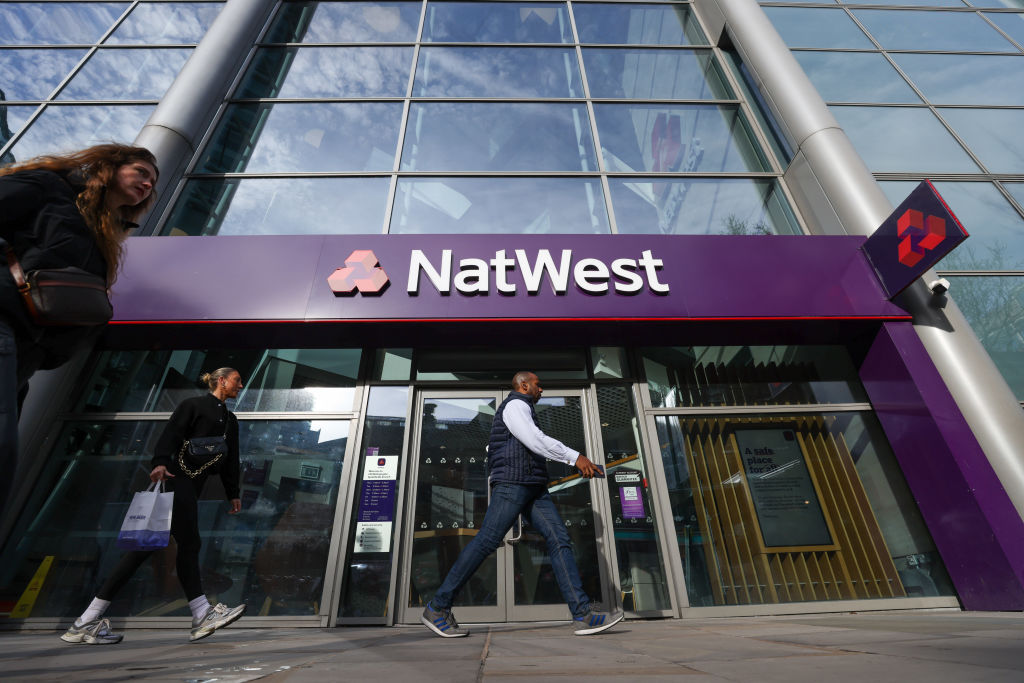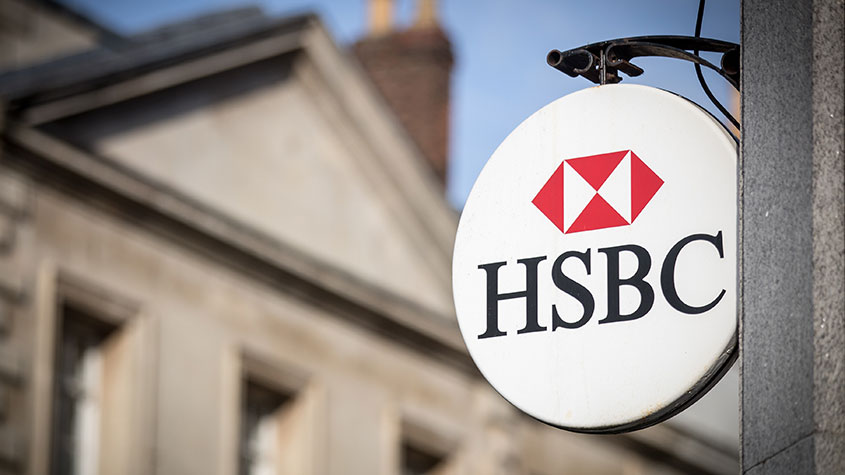Treasury grills bank bosses over savings rates
The Treasury Select Committee says customers are earning between 0.5% and 0.65% on basic savings accounts, well below the Bank of England base rate


Get the latest financial news, insights and expert analysis from our award-winning MoneyWeek team, to help you understand what really matters when it comes to your finances.
You are now subscribed
Your newsletter sign-up was successful
Want to add more newsletters?

Twice daily
MoneyWeek
Get the latest financial news, insights and expert analysis from our award-winning MoneyWeek team, to help you understand what really matters when it comes to your finances.

Four times a week
Look After My Bills
Sign up to our free money-saving newsletter, filled with the latest news and expert advice to help you find the best tips and deals for managing your bills. Start saving today!
The Treasury Select Committee has grilled the bosses from the UK’s “big four” largest banks over why savings rates are so low, despite Bank of England base rate sitting at 4%.
Barclays, Lloyds, NatWest and HSBC were questioned by the cross-party committee on a wide range of issues, including savings rates, mortgage rates, bank branch closures, changes to financial regulations and even how homeowners in flood-risk areas are treated.
The committee of MPs said it was important to explore whether banks are boosting their profits by increasing the gap between the interest paid to savers and the interest paid by borrowers.
MoneyWeek
Subscribe to MoneyWeek today and get your first six magazine issues absolutely FREE

Sign up to Money Morning
Don't miss the latest investment and personal finances news, market analysis, plus money-saving tips with our free twice-daily newsletter
Don't miss the latest investment and personal finances news, market analysis, plus money-saving tips with our free twice-daily newsletter
For example, variable-rate mortgage holders were paying over 4% interest at the end of 2022, up from 2% at the start of the year, according to Bank of England data. But the interest earned by savers with fixed-rate cash ISAs only rose from 0.5% to 1% in the same period.
The measly rise in savings rates by some of Britain’s biggest banks is at odds with the big rise in base rate, which has soared from a record low of 0.1% to 4% in just 14 months.
As the committee noted: “Customers of Barclays, HSBC, Lloyds Banking Group and NatWest Group can expect to earn between 0.5% and 0.65% interest on basic savings accounts. MPs on the committee will ask why these rates are so low, and whether banks can be doing more to advise customers on how to arrange their funds to maximise the return they receive.”
Harriett Baldwin, chair of the Treasury Committee, added that “public scrutiny of our largest financial institutions is vital” and that it was important to question the leaders of the UK’s biggest banks “on issues of fundamental importance to our constituents”.
Customer inertia over savings accounts
The committee asked the bank bosses whether they rely on customer inertia over moving to better products.
The Evening Standard reported that Matt Hammerstein, chief executive at Barclays UK, replied: “I definitely refute the idea that we rely on inertia, I don’t think that’s in any way representative of the way we design products or the way we engage customers.”
Meanwhile, Ian Stuart, chief executive of HSBC UK, said: “We actively reach out to customers. Five and a half million emails went out recently to customers… we’re actively trying to bring customers on to the good savings products that we’ve launched.”
“I would argue the vast majority of our customers do shop around.”
Lloyds Banking Group chief executive Charlie Nunn told the hearing: “When you look at instant access savings, we see between 5% to 7% of all of our balances churning – moving between our competitors – every month. So it’s one of the most actively moved products or services that we have.”
Mortgage rate volatility
The bosses were also asked about the mortgage market after rates jumped last autumn amid market volatility.
According to the Evening Standard, Alison Rose, chief executive of NatWest Group, said there was “huge disruption during the mini-Budget when we saw gilts and the swap rate grow very quickly”.
She added that, while mortgage rates are coming down, the bank is helping customers look at their balance sheets “and find the right answer for them”.
The average two-year fixed-rate mortgage is now 5.79%, according to the data provider Moneyfacts. In December, the average rate was 6.01%.
Bank branch closures
There has been a string of bank branch closure announcements recently, and the MPs were keen to find out the extent to which access to cash is impacted by branch closures.
Lloyds and Halifax recently announced they would close a further 40 branches this year, while Barclays said it would shut another 15 branches. Last year, HSBC said it would shut the doors to 114 branches from April 2023.
Ian Stuart at HSBC told the committee the bank was “absolutely committed to a physical footprint in the UK”.
He added: “We think it’s important, but we have to get it scaled properly for the long term.
Stuart said 98% of HSBC’s transactions in December were digital.
Charlie Nunn at Lloyds Banking Group told MPs: “We remain very committed to our branch network.”
Alison Rose at NatWest Group said the bank was seeing “significant shifts in customer behaviour”, adding: “But we recognise we need to look after all of our customers and make sure that we support particularly vulnerable customers.”
The committee also discussed the government’s ‘Edinburgh Reforms’ to financial services, with the chief executives giving their views on plans to relax the ring-fencing regime, which separates retail from investment banking.
Meanwhile, the MPs voiced concern about how homeowners living in a flood-risk area were treated, for example in terms of insurers doing risk assessments and mortgage providers carrying out valuations.
Why haven’t savings rates kept pace with Bank rate increases?
While the Bank of England base rate acts as a guide to banks and building societies over whether they should change their savings rates, there is a stronger force at play: what their competitors are doing.
“No bank is going to hike rates dramatically above the highest rival, as they only need to nudge it slightly over their competitor’s offering to win business,” explains Laura Suter, head of personal finance at the investment platform AJ Bell.
She adds: “On top of this, banks are very keen to protect their profits, which comes at a cost to UK households. While mortgage rates have shot up, savings rates haven’t risen by nearly as much and some banks are worse than others for pocketing the difference rather than boosting savings rates. Banks make money on the difference between what they charge those borrowing money and what they hand over to savers – the bigger the difference, the bigger the profits.
“Banks are also concerned about what’s coming in the rest of the year. A recession means people losing their jobs, which in turn means more people defaulting on their mortgage or other debt, which is a cost for banks. A similar trend will be seen in the commercial market, with businesses defaulting on loans. Many banks are preparing for a wave of defaults and trying to shore up their balance sheets in anticipation.”
How to get the best savings rate
According to Suter, lots of people stashed away cash during the pandemic and many are still sitting on these cash pots, often in their current account or in old savings accounts paying very little interest.
Even if your savings rate was one of the best a year ago, it probably isn’t now, and it pays to shop around.
As Bank rate has risen over the past year, there has been something of a savings war, especially among challenger banks and building societies.
If you hunt around for a better deal you can get more than 3% for easy-access, up to 7% for regular savings and more than 4% for a one-year fixed-rate account.
Check out our round-up of the best savings accounts on the market.
Suter says savers are starting to vote with their feet. “The latest Bank of England figures show that in the final two months of 2022, savers took £7.7bn out of easy-access accounts paying little or no interest and at the same time funneled £17.3bn into fixed-rate accounts, where rates have shot up.”
Get the latest financial news, insights and expert analysis from our award-winning MoneyWeek team, to help you understand what really matters when it comes to your finances.

Ruth is an award-winning financial journalist with more than 15 years' experience of working on national newspapers, websites and specialist magazines.
She is passionate about helping people feel more confident about their finances. She was previously editor of Times Money Mentor, and prior to that was deputy Money editor at The Sunday Times.
A multi-award winning journalist, Ruth started her career on a pensions magazine at the FT Group, and has also worked at Money Observer and Money Advice Service.
Outside of work, she is a mum to two young children, while also serving as a magistrate and an NHS volunteer.
-
 Should you buy an active ETF?
Should you buy an active ETF?ETFs are often mischaracterised as passive products, but they can be a convenient way to add active management to your portfolio
-
 Power up your pension before 5 April – easy ways to save before the tax year end
Power up your pension before 5 April – easy ways to save before the tax year endWith the end of the tax year looming, pension savers currently have a window to review and maximise what’s going into their retirement funds – we look at how
-
 NatWest online banking and mobile app 'running again' after outage
NatWest online banking and mobile app 'running again' after outageBreaking NatWest's online banking and mobile app went down this morning, affecting as many as 10 million users.
-
 Barclays bank caps in-branch cash deposits for personal banking customers
Barclays bank caps in-branch cash deposits for personal banking customersNews Barclays said the new cash deposit limit was part of a bid to clamp down on financial crimes, like money laundering. But will it affect you?
-
 Why you should act now to secure the best fixed savings rates as lenders start to pull their top deals
Why you should act now to secure the best fixed savings rates as lenders start to pull their top dealsFixed rate deals have started to drop, with some providers pulling them altogether. We look at why you may need to act now to secure the best rates as interest rates remain frozen.
-
 Act fast: HSBC to pull its 5.7% one-year bond
Act fast: HSBC to pull its 5.7% one-year bondSavers have until Wednesday to apply for HSBC’s one-year fixed-rate bond. The withdrawal of the account follows NS&I’s decision to pull its market-leading one-year bonds earlier this month. We explain why you need to act fast to secure the best rates.
-
 Lloyds, Santander and HSBC hike savings rates
Lloyds, Santander and HSBC hike savings ratesBanks and building societies have been raising their savings rates as the base rate continues to rise. Our round-up of all the savings rates hikes.
-
 Paragon raises rate on one-year fixed cash ISA to 5.75%
Paragon raises rate on one-year fixed cash ISA to 5.75%Paragon Bank ups its one-year fixed cash ISA rate to 5.75% - is it enough to top the table?
-
 Lessons from the £11m pension saver ‒ how to build a better pension
Lessons from the £11m pension saver ‒ how to build a better pensionAs an FOI reveals the UK’s most successful pension saver has built an £11m pot for their retirement, we outline the tactics you need to follow to build your own retirement warchest.
-
 NS&I hikes Premium Bond prize fund rate to 24-year high
NS&I hikes Premium Bond prize fund rate to 24-year highThe Premium Bond prize fund rate will go up again next month, hitting its highest level since 1999. NS&I is also raising the interest rate on a range of savings products. We explain what the changes mean for you.